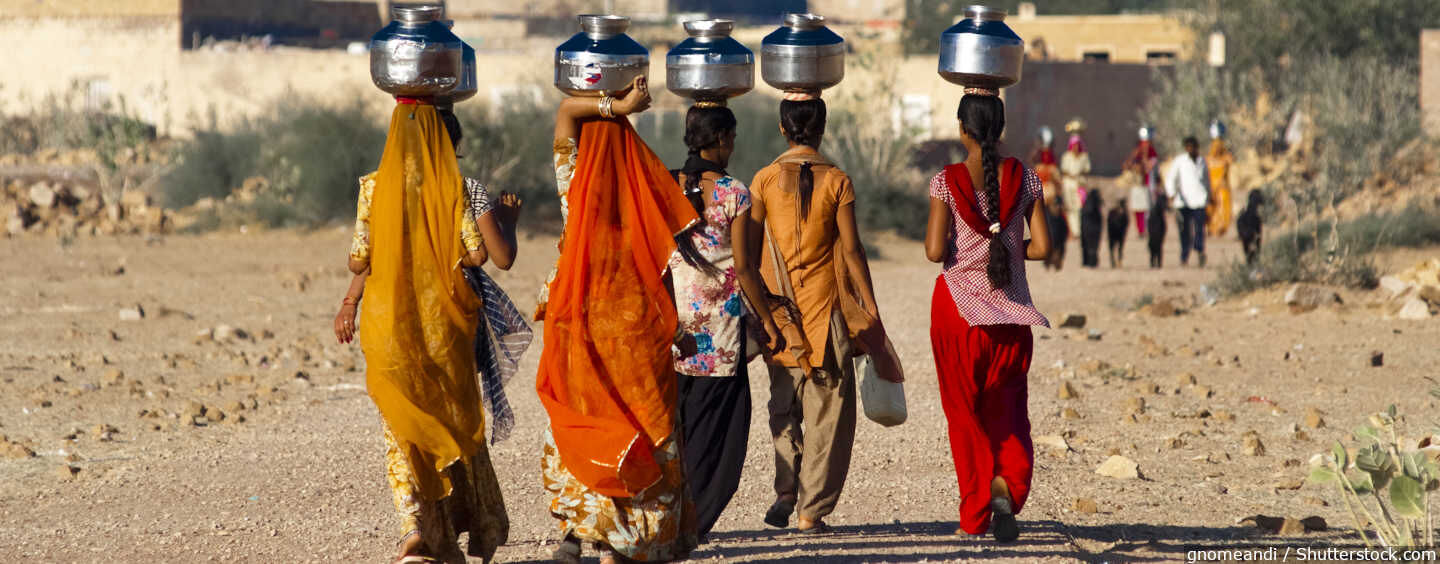Women affected by climate change
Priyanka Saurabh
The impact of climate change is felt across different groups and communities, however, it is disproportionately higher for women due to heavy dependence on natural resources, high poverty levels, lack of access to basic amenities, etc. Extreme climate events such as floods and droughts will have a particularly high impact on poor women which can also lead to devastating effects on socio-economic conditions.
Due to climate change in Asia and Africa, men have to leave their farms and migrate to cities in search of work. Due to this, the pressure of work is increasing on the women living at home. Since the migration of men, women are left alone at home and they have to take care of their children and farms alone. This is the reason why they are forced to live their life in odd circumstances. This is also affecting their health.
The impact of climate change on women may increase Gender inequality Women are more dependent on livelihoods like fishing, agriculture, horticulture, etc. which are under threat from climate change. The increase in climate change events will reduce the productivity and income of women, which will increase the level of gender inequality.
Events related to climate change such as droughts and floods may lead to the displacement of groups of people living in vulnerable areas, making the area uninhabitable. However, it is more likely to affect women. For example, based on UN estimates, 80% of people displaced by climate change are women.
Women are also disproportionately affected by drought and water scarcity, often bearing the burden of traveling to distant water resources and spending significant time returning home to provide water for their families. In East Africa, drought has forced pastoral farmers to travel long distances to find water.
Climate change reduces the productivity of agriculture, which may threaten global food security. Girls are more likely to be provided with less food than boys during times of food scarcity, thus making them more vulnerable to malnutrition and diseases, especially vector-borne diseases made more prevalent by climate change.
In the aftermath of disasters, women are more likely to experience sexual harassment, violence, and other human rights violations. Women's role in mitigating the effects of climate change Women have historically developed knowledge and skills related to water harvesting and storage, food preservation and rationing, and natural resource management. This traditional knowledge can be used to reduce vulnerability.
For example, older women in Africa represent the knowledge pool with their inherited knowledge and expertise related to early warnings and mitigating the effects of disasters. Women's groups such as self-help groups can be leveraged to promote education and skills that can help in developing adaptation strategies against climate change.
Women can act as first responders in community responses to natural disasters and contribute to the post-recovery needs of their communities. Climate investment can be furthered through grassroots women's organizations.
Adaptation initiatives should identify and address gender-specific impacts of climate change, particularly in areas related to water, food security, agriculture, energy, health, disaster management, and conflict. Women's priorities and needs should be reflected in development planning and funding. Women should be part of the decision-making process at the national and local levels regarding the allocation of resources for climate change initiatives.
It is also important to ensure gender-sensitive investment in programs for adaptation, mitigation, technology transfer, and capacity building. Grant-giving organizations and donors should also take women-specific circumstances into account when developing and introducing technologies related to climate change adaptation and do their best to address economic, social, and cultural barriers that may benefit women. This may prevent you from lifting and using them.
Women are still a largely untapped resource. Restricted land rights, lack of access to financial resources, training, and technology, and limited access to political decision-making areas often prevent them from playing a full role in tackling climate change. Women, despite being disproportionately affected by climate change, are critical to climate change adaptation and mitigation and should be included in decision-making.
Climate change is having a worse effect on women's health than men's. The rate of death and injury due to climate change is two-thirds higher among women than among men. Women's social status and cultural barriers, and problems caused by climate change are more responsible for their death. The rapidly changing climate is an urgent issue of justice and equity. Due to climate change, a large number of girls and women are not only being deprived of their fundamental rights but are also facing accidental death.
It is extremely important to have more and more women in leadership positions to empower women and balance the health of the environment. It is also important to understand the important role of women in the ongoing fight against climate change.
